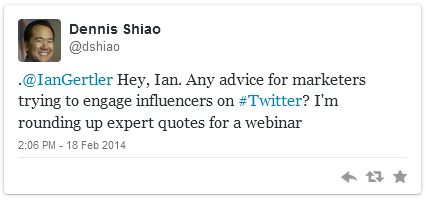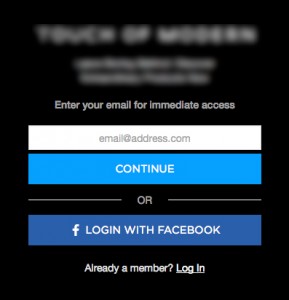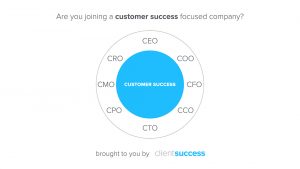
Recently, I presented a webinar with Leadtail titled “How Top Marketers at Mid-Size Companies Engage on Social Media.” The webinar related to a Social Insights Report that DNN and Leadtail collaborated on.
In the report, we provided insights on how marketers at mid-size companies use Twitter: the links they share, the brands they retweet, the users they mention and more. Among the lists included in the report are the “Top 50 People Most Retweeted” and the “Top 50 People Most Mentioned” (on Twitter).
Prior to the webinar, I was reviewing the slides with Karri and Carter of Leadtail. We were looking at some of the “actionable insights” we included, on how brands (and people) can engage influencers on Twitter.
The Light Bulb Moment
As long as we’re including tips on how to engage influencers on Twitter, we thought, why not practice what we preach? We thought we’d reach out to the Top 50 List (on Twitter) and ask them how they like to be engaged by others.
We were able to hear back from these influencers quickly. As a result, we inserted a number of their tweets into the webinar slides. So we considered it a successful exercise in influencer engagement. From that exercise comes this eight step guide for doing your own influencer engagement on Twitter.
8 Steps to Engaging Influencers on Twitter
Without further ado, let’s cover the eight steps for engaging influencers on Twitter.
1) Build Relationships Before You Need Them

Credit goes to Ann Handley (@annhandley) for these words of wisdom (thanks, Ann!). The first step is quite easy: follow influencers on Twitter. The follow gives influencers an indication that you exist. Even influencers with 100,000 followers will check to see the “new followers” they’re getting. Some influencers “follow back” liberally, while others are more selective. Don’t expect an immediate “follow back.”
In the meantime, observe the sorts of content the influencers are sharing and publishing, as well as the nature of their interactions with other users. Occasionally retweet some of their tweets. Don’t retweet everything they tweet, as that can border on creepy. Look at the articles or blog posts they’re publishing. Tweet a link to the article, include some of your thoughts and be sure to “mention” their Twitter handle in the tweet.
Also, focus on sharing useful and relevant content on Twitter. As an influencer gets mentioned by you, they’re likely to “check out” your Twitter profile. In addition to your photo and bio, they’ll probably view your most recent tweets. If you can interest them with your tweets, they may decide to follow you back.
If you do receive a follow back, that’s great. Now, you can “direct message” (DM) the influencer and s/he can DM you back. This gives you a communications channel to the influencer, but I would not rely on that channel, as many Twitter users ignore DM’s (due to volume, spam, unsolicited offers, etc.).
Instead, take the follow back as a good sign, but keep doing useful things: sharing useful articles, sharing their content, replying to some of their tweets, etc.
2) Partner Up to Widen Your Reach
We used the “power of three” in our influencer outreach: Karri, Carter and myself. Each of us built relationships with some influencers. Now, it was an opportunity to make use of them. By pooling together our outreach, we tripled our combined reach. We took the Top 50 lists and divvied up the outreach across the three of us. But we didn’t seek to engage the entire Top 50 lists.
3) Identify the Influencers Most Likely to Engage

Photo source: User vox_efx on flickr.
If you’re looking to curry favor with U.S. President Barack Obama, you’re unlikely to do so via Twitter. By checking the President’s Twitter feed, you’ll see a lot of content sharing, a few retweets (mainly of the White House) and very few interactions with other users.
Now look at some of your target influencers. If they interacted with you before (e.g. retweet or mention), there’s a chance they’ll do so again. Check how often they interact with other users (count how many of their tweets begin with a Twitter user handle). Also, look at how quickly they respond. Some influencers are on Twitter all the time. They receive a mention and reply back within minutes. If you find a user like this who’s also interacted with you before, they’re likely to engage with you again.
Of course, if you “know” the influencer (perhaps you met them at a conference and connected with them on LinkedIn), that’s a good sign, too. With our outreach, we looked at a Top 50 list and determined the 10-15 people who were the most likely to engage with us.
Once you identify your “most likely” list, throw in a few “reach for the stars” attempts, because you could get lucky. While he didn’t respond, we did tweet out to Jimmy Fallon.
4) Define Your “Ask”
With few exceptions, you won’t facilitate business or transactions via influencers on Twitter. It’s challenging to get influencers to provide an action that directly benefits you. Instead, you need an arrangement that benefits both of you.
Often, that’s about inviting influencers into a conversation. Choose a conversation topic that interests them (or, if you have a pre-defined topic, use that topic to identify relevant influencers). In our case, the “ask” was pretty simple: share some tips with us.
5) Communicate Your “Ask”
Get this step wrong and your entire plan may backfire. To start, be open and transparent. That means explaining (in your tweet) what you’re looking to get and why. The “why” is important, since it provides influencers with the right context.
Next, communicate how you’ll use what they provide and whether there are any next steps. In our outreach, we communicated to influencers that we were compiling quotes to use in a webinar. For them, that signaled where their tweet may end up. This gives them the chance to decline the opportunity or, tweet back, but ask you NOT to include the tweet in the webinar.
Be sure to address the what, why, how and where.

Bonus Tip: If the first word of your tweet is a Twitter handle, insert a period (“.”) at the beginning, like I did in this tweet to Ian Gertler. If I did NOT preface the tweet with a period, the only people who’d see my tweet are Ian, plus my followers who also follow Ian (though I bet many of them do just that). By sharing your tweet with a wider audience, you may draw others into the conversation, such as Don Power, who’s influential in his own right.
6) Make “Digital Eye Contact”
When we ask for something in person, we always make eye contact with the person we’re asking. In the online world, I call it “digital eye contact ” — looking directly at the person means being present and available. Don’t auto-tweet your “ask” at a scheduled time. Make sure you’re ready, willing and able to respond (quickly!) to any question or comment from the influencer.
If influencers respond and it takes you a day to get back to them, they’re less likely to take action. But if you reply back minutes later, they’re more inclined to give you what you want, on the spot.
7) Follow Up to Close the Loop

Circle back with the influencers (who participated) to show them how you used their contributions. When we uploaded the webinar slides to SlideShare, we tweeted to our contributors, pointing them to the slides in which their tweet was listed. In addition, we created a “story” of tweets using Storify and tweeted the Storify link to the influencers.
8) Continue the Conversation
The Twitter engagement could (and should) be the beginning of a long term relationship. Continue to read influencers’ blog posts and tweets and engage with them when appropriate. If you continue to provide value, there may come a day when the influencers come to you to ask for a favor.
Conclusion
Following this list will give you a strong chance of engaging with influencers in your target market:
- Build Relationships Before You Need Them
- Partner Up to Widen Your Reach
- Identify the Influencers Most Likely to Engage
- Define Your “Ask”
- Communicate Your “Ask”
- Make “Digital Eye Contact”
- Follow Up to Close the Loop
- Continue the Conversation
This post was originally published on the DNN blog.
Digital & Social Articles on Business 2 Community(187)
Report Post







